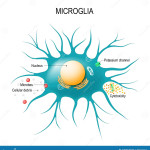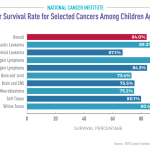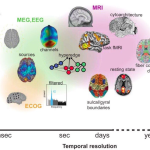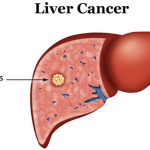Social connection is increasingly recognized as a cornerstone of human health, akin to vital physical needs such as food and water. With the U.S. Surgeon General identifying social isolation as a dire public health issue, the importance of social interactions cannot be overstated. Recent research highlights the neurological basis of our need for companionship, revealing intricate systems within the brain that dictate our social behaviors. Mental health and social connection are profoundly intertwined, with isolation adversely affecting our overall well-being. As studies delve into the hypothalamic circuit responsible for these social needs, it becomes clear that fostering meaningful relationships is essential not just for our emotional satisfaction, but also for our mental and physiological health.
The quest for human interaction, often termed as social engagement, is viewed by many as a fundamental aspect of psychological wellness. In recent years, the focus has shifted towards understanding how these interactions relate to mental health and personal fulfillment. As researchers investigate how our cravings for connection mirror basic biological drives such as thirst and hunger, we are discovering the significant impact of loneliness and isolation on overall health. By examining the neurological pathways that govern our need for companionship, we can gain insights into the delicate balance of our social lives. This nuanced understanding encourages a deeper appreciation for the role that community and interpersonal relationships play in our day-to-day experiences.
The Neurological Basis of Social Needs
Understanding the neurological basis for social needs is crucial in recognizing its parallel importance to other fundamental human requirements like food and water. Recent research has revealed that just as the body communicates a lack of sustenance through hunger signals, the brain has specific neural pathways that encode the need for social interaction. This perspective shifts our understanding of social connectivity from mere preference to a necessity vital for mental health. The hypothalamus plays a pivotal role in regulating these urges, suggesting that social withdrawal can mirror a physiological state of deprivation.
Exploring how specific neurons in the hypothalamic circuit respond to isolation can shed light on the mechanisms behind social needs. By utilizing innovative imaging techniques, researchers observed the activations during phases of social seeking and satiety in animal models. The results indicate that just as hunger drives animals towards food, social deprivation influences the brain in similar ways, underlining the biological imperative of forming and maintaining social bonds. This establishes a direct link between neurological pathways and the psychological outcomes associated with social interactions.
The Importance of Social Interactions for Mental Health
Promoting social interactions is fundamental for maintaining mental well-being. Numerous studies have established that positive social connections contribute profoundly to emotional support, reducing feelings of loneliness which can lead to mental health issues such as depression and anxiety. Engaging with others, whether through face-to-face interactions or digital communications, stimulates the release of neurotransmitters like oxytocin and serotonin, which are crucial for feelings of happiness and belonging. This connection underscores why health professionals emphasize the need for nurturing robust social networks as part of holistic health care.
Conversely, the impact of isolation on well-being cannot be understated. During times of social distancing, such as during global health crises, many individuals experienced heightened stress and exacerbated mental health issues due to lack of social engagement. The isolation paradox demonstrates that while social media can provide a semblance of connection, it may not satisfy the innate human need for physical presence and touch. This highlights an alarming need to identify solutions that blend technology with genuine human interaction to foster mental well-being.
Impact of Isolation on Well-Being
Isolation has profound effects on individual well-being, often leading to deteriorating mental health outcomes. Research indicates that prolonged social isolation can trigger feelings of loneliness, which may exacerbate mood disorders and lead to cognitive decline. This connection between isolation and emotional distress has prompted health authorities to recognize social interaction as an essential component of public health that should be addressed alongside traditional medical concerns.
The symptoms of isolation often mirror those of a variety of psychological disorders, reinforcing the need for public awareness and intervention strategies. Strategies such as community programs aimed at fostering social integration can mitigate these effects, enhancing overall well-being. By understanding the psychological ramifications of isolation, it becomes imperative for individuals and communities to actively seek out connections that support mental resilience.
Neuroscience: Unraveling the Mysteries of Social Connection
The field of neuroscience has made significant strides in unraveling the mysteries of how social connections are formed and maintained at a biological level. Studies have identified key neurotransmitters that play vital roles in signaling social needs and regulating emotional responses. For instance, oxytocin, often referred to as the ‘love hormone,’ not only facilitates bonding but also enhances trust and empathy, crucial elements in any healthy relationship. This reinforces the idea that social connections are deeply embedded in our biology.
Furthermore, advancing our understanding of the brain’s structure and function has illuminated how disruptions in social connectivity might lead to various psychological disorders. Insights into brain circuitry related to social behavior help researchers pinpoint why certain individuals struggle with social interactions. This knowledge is vital for developing targeted therapies that could bolster social skills and improve overall mental health, illustrating the intersection of neuroscience and psychological wellness.
Hypothalamic Circuitry and the Drive for Social Interaction
Recent studies suggest the hypothalamic circuit is crucial in driving both social and physiological needs. Traditionally recognized for regulating hunger and thirst, this brain region’s involvement in social behaviors introduces a new dimension in understanding human needs. The neurons within this circuitry react to social deprivation similarly to how they would in response to hunger, emphasizing that the desire for social interaction might stem from a fundamental biological urge to avoid discomfort and seek out companionship.
Exploring the dynamics of the hypothalamic circuit reveals fascinating insights into how the brain prioritizes social interaction as essential. When subjected to social isolation, researchers have observed significant activations in these neurons, highlighting a potential biochemical explanation for why the human longing for connection is so profound. By decoding these neural pathways, future research can help illuminate how to address the needs of individuals in social distress, effectively bridging the gap between basic human needs and mental health.
Addressing Social Needs: Implications for Health Professionals
Health professionals must integrate an awareness of social needs into patient assessment and care strategies. With the acknowledgment of social connection as a basic human need, medical practitioners can better address the holistic well-being of their patients. It’s essential to create environments where social interactions are not only encouraged but facilitated—whether through community programs, support groups, or therapy sessions that emphasize interpersonal relationships.
Understanding the mental health implications of social connections also equips healthcare providers with the tools to create effective intervention strategies for patients experiencing isolation. These can include recommending activities that enhance social involvement or facilitating connections in settings where individuals might feel excluded. By prioritizing social health alongside physical health, professionals can foster comprehensive care that addresses the essential needs of all patients.
The Role of Touch in Social Connections
Touch has been recognized as a vital component of social interaction, promoting feelings of trust and bonding among individuals. Research indicates that physical touch can significantly impact emotional well-being, highlighting its essential role in human connection. During childhood, touch is a crucial aspect of development, and as adults, the need for physical closeness remains essential, influencing mental states and interpersonal relationships.
The implications of diminished touch in today’s increasingly digital world are profound, particularly as online interactions often lack the tactile element that fosters deeper connections. As individuals cope with the absence of physical closeness, understanding the significance of touch can guide interventions that promote emotionally healthy relationships, especially in a landscape where screen-based communication often prevails.
Sustaining Healthy Relationships in a Digital Age
As society increasingly moves towards digital interactions, sustaining healthy relationships presents new challenges. While technology offers platforms for social connection, it can also create distances that inhibit genuine emotional connections. Understanding how to navigate these platforms effectively, by prioritizing meaningful interactions, is key to maintaining mental health in a digital landscape.
Strategies for fostering genuine connections include setting boundaries on screen time devoted to socializing and expanding efforts to meet in person. Encouraging community engagement and creating spaces where individuals can gather face-to-face remains crucial for nurturing social bonds, which are essential for emotional well-being. As research continues to explore the effects of our current social habits, integrating supportive practices will become increasingly important.
Future Directions: Research in Social Neuroscience
The exploration of social neuroscience is rapidly evolving, promising new insights into how social connections affect mental health. Future research aims to delve deeper into the dynamics of brain circuits related to social needs and the impact of various factors, including culture and environment. By elucidating these complex interactions, researchers hope to offer innovative strategies that can improve social engagement and address issues stemming from social disconnection.
Furthermore, the implications of this research extend beyond scientific understanding into practical applications. Collaboration between neuroscientists, psychologists, and health professionals can empower communities to develop supportive environments where social connections thrive. This multidisciplinary approach will be vital in mitigating the detrimental effects of isolation and reinforcing the fundamental importance of social interactions for mental health.
Frequently Asked Questions
What is the neurological basis of social needs in humans?
The neurological basis of social needs involves specific brain circuits, particularly within the hypothalamus, which govern our desire for social interactions. Recent research suggests these circuits operate similarly to those that regulate basic physiological needs like hunger and thirst, indicating that social connection is as crucial for our well-being as food and water.
How does social connection affect mental health?
Social connection has a profound impact on mental health. Positive social interactions can enhance emotional well-being and reduce feelings of loneliness and depression. Conversely, isolation can exacerbate mental health issues, underscoring the importance of maintaining social ties to improve overall mental health outcomes.
What are the effects of isolation on well-being?
Isolation can have detrimental effects on well-being, including increased feelings of loneliness, anxiety, and depression. Research indicates prolonged social isolation can alter our social behavior, leading to a decreased interest in interactions and increased mental health struggles, similar to the effects of physical deprivation.
Why are social interactions considered a basic human need?
Social interactions are considered a basic human need because they fulfill critical emotional and psychological requirements, much like food and water. The need for social connection is encoded in our brains, emphasizing its vital role in promoting mental health and overall well-being.
What role do sensory experiences play in social connection?
Sensory experiences, especially touch, play a significant role in fulfilling social needs. Research shows that tactile interaction, such as hugging or handshaking, is essential for feeling connected to others. This is particularly relevant in today’s digital age, where physical touch may be diminished, impacting our social bonds.
How can understanding the hypothalamic circuit help improve social interactions?
Understanding the hypothalamic circuit that regulates social needs may lead to improved therapies for mental health conditions where social engagement is compromised, such as autism and depression. Insights from this research could help develop interventions that promote healthy social behaviors and enhance mental health.
What implications does the research on social connection have for our daily lives?
Research on the importance of social connection highlights the need to prioritize nurturing relationships and engaging in social interactions, which are vital for mental health. It also encourages us to recognize the significance of touch and face-to-face interactions, particularly in a world increasingly dominated by digital communication.
| Key Point | Details |
|---|---|
| Social Connection as a Human Need | Health professionals consider social connection essential, similar to needs for food and shelter. |
| Public Health Concern | The U.S. Surgeon General identified social isolation as a major public health issue in 2023. |
| Neurological Basis of Social Isolation | New research reveals the brain’s mechanisms behind the social need, highlighting its importance for well-being. |
| Mental Health Impact | Difficulties in social interaction are common in mental illness conditions like autism and depression. |
| Neural Analysis in Mice | Researchers studied mice to reveal neurons active during isolation and social reunion. |
| Tactile Stimulation Importance | Experiments showed that tactile sensation is crucial for social satisfaction, similar to human interactions. |
| Touch’s Role in Human Connection | Touch is key in human interactions, especially as digital communication becomes more prevalent. |
| Support from NIH | The research was partially funded by the National Institutes of Health. |
Summary
Social connection plays a crucial role in our lives, just as fundamental as food and water. Recent research uncovers the deep-rooted neurological basis behind our need for social interactions. Understanding these connections helps recognize the impact of social engagement on mental health and emphasizes the importance of nurturing our relationships in a fast-paced digital world.









